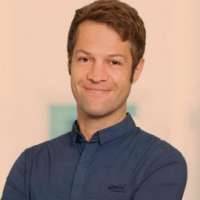
Fabian Theis PhD
Physiology and Biophysics
Munich, Bavaria, Germany
Connect with the speaker?
Fabian Theis uses artificial intelligence to unlock the secrets of human cells. How do they interact and what goes wrong with diseases at the cellular level? Single-cell sequencing allows him and his team to analyze and model single-cell heterogeneities, as well as use machine and deep learning for prediction in biology and biomedicine.
Fabian Theis is head of the Computational Health Center at Helmholtz Munich and holds the chair of "Mathematical Modeling of Biological Systems" at the Department of Mathematics of the Technical University of Munich. He is director of HelmholtzAI and Associate Faculty at the Wellcome Trust Sanger Institute since 2019 as well as a member and/or coordinator of various initiatives.
Fabian holds MSc degrees in Mathematics and Physics (University of Regensburg, 2000) a Ph.D. degree in Physics from the same university (2002), and a Ph.D. in Computer Science (University of Granada, 2003). In 2017, he was awarded the Erwin Schrödinger prize together with an interdisciplinary team at ETH Zürich.
He has been working as visiting researcher at the department of Architecture and Computer Technology (University of Granada, Spain), at the RIKEN Brain Science Institute (Wako, Japan), at FAMU-FSU (Florida State University, USA), and at TUAT's Laboratory for Signal and Image Processing (Tokyo, Japan).
As a principal researcher, he led the 'Signal processing & information theory' group at the Institute of Biophysics in Regensburg, Germany. In 2006, he headed a junior research group as a Bernstein fellow at the Bernstein Center for Computational Neuroscience, within the Max Planck Institute for Dynamics and Self-Organisation in Göttingen. 2007, he became working group head of CMB at the Institute of Bioinformatics at Helmholtz Munich. Two years later, he became Associate Professor for Mathematics in Systems Biology at TU Munich. From 2009 to 2014 he was also a member of the ‘Young Academy’ (founded by the Berlin-Brandenburg Academy of Sciences and Humanities and the German Academy of Natural Scientists Leopoldina) and in 2010 he was awarded an ERC starting grant. In 2021 he was awarded the Hamburg Science price - the highest endowed price by a german science academy.
Fabian Theis is head of the Computational Health Center at Helmholtz Munich and holds the chair of "Mathematical Modeling of Biological Systems" at the Department of Mathematics of the Technical University of Munich. He is director of HelmholtzAI and Associate Faculty at the Wellcome Trust Sanger Institute since 2019 as well as a member and/or coordinator of various initiatives.
Fabian holds MSc degrees in Mathematics and Physics (University of Regensburg, 2000) a Ph.D. degree in Physics from the same university (2002), and a Ph.D. in Computer Science (University of Granada, 2003). In 2017, he was awarded the Erwin Schrödinger prize together with an interdisciplinary team at ETH Zürich.
He has been working as visiting researcher at the department of Architecture and Computer Technology (University of Granada, Spain), at the RIKEN Brain Science Institute (Wako, Japan), at FAMU-FSU (Florida State University, USA), and at TUAT's Laboratory for Signal and Image Processing (Tokyo, Japan).
As a principal researcher, he led the 'Signal processing & information theory' group at the Institute of Biophysics in Regensburg, Germany. In 2006, he headed a junior research group as a Bernstein fellow at the Bernstein Center for Computational Neuroscience, within the Max Planck Institute for Dynamics and Self-Organisation in Göttingen. 2007, he became working group head of CMB at the Institute of Bioinformatics at Helmholtz Munich. Two years later, he became Associate Professor for Mathematics in Systems Biology at TU Munich. From 2009 to 2014 he was also a member of the ‘Young Academy’ (founded by the Berlin-Brandenburg Academy of Sciences and Humanities and the German Academy of Natural Scientists Leopoldina) and in 2010 he was awarded an ERC starting grant. In 2021 he was awarded the Hamburg Science price - the highest endowed price by a german science academy.

